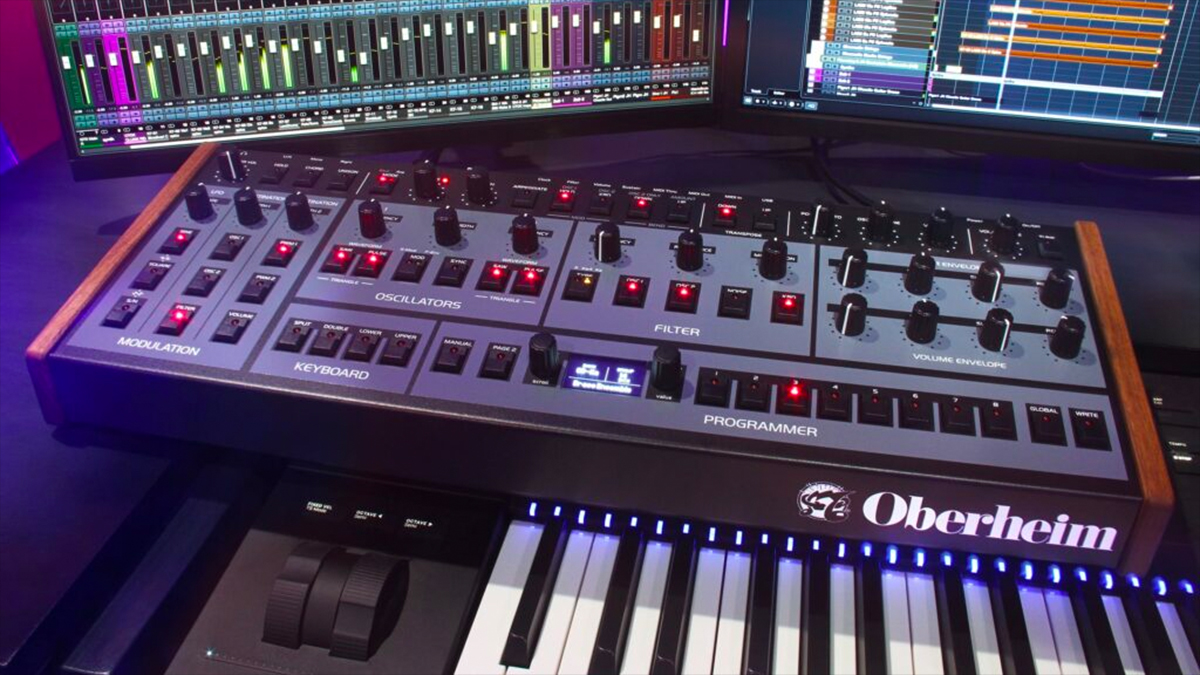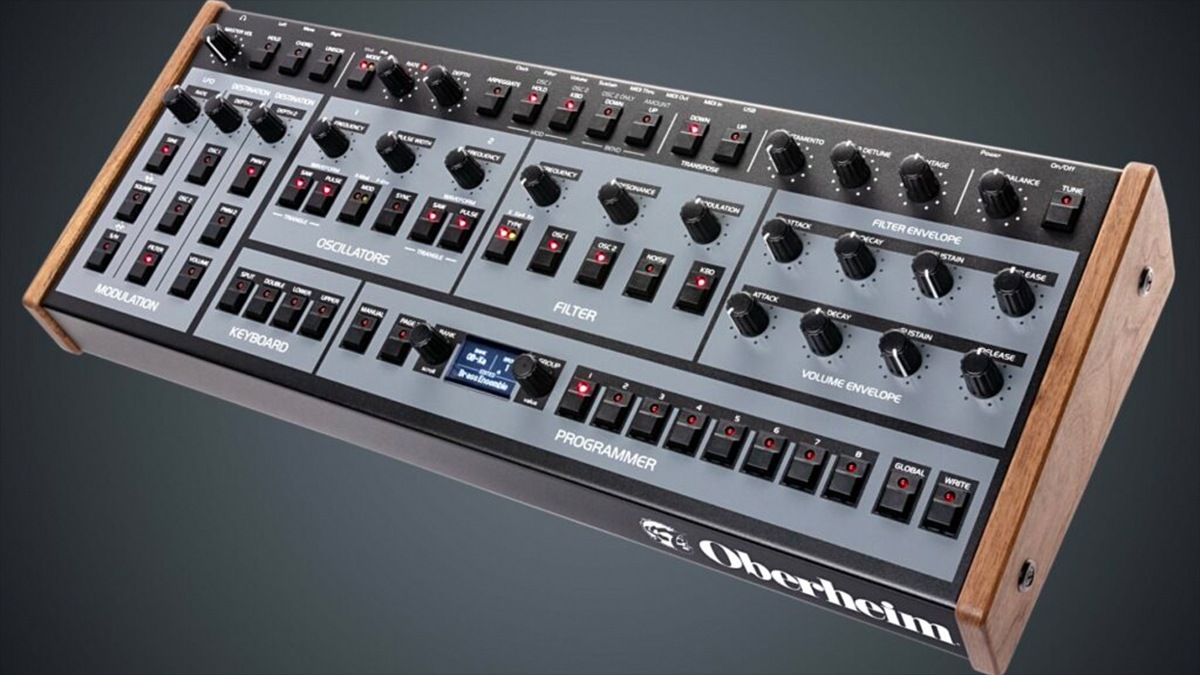Superbooth 23: Oberheim’s OB-X8 desktop module is smaller and cheaper than the keyboard version, but sounds just as good
Compact instrument says au revoir to the Fatar, downsizing the price and form factor in the process

Superbooth 23: The headline says it all, really. Oberheim has unveiled a desktop version of its stunning OB-X8 synth and, aside from the omission of the keys and paddles, it’s pretty much the same as the keyboard version.
With the all-analogue signal path in place, this means that the OB-X8 module should sound just as good as the standard synth. The Arpeggiator and Keyboard Split & Double functionality is here, too, ready to accept instruction from your favourite MIDI controller.
Launched almost exactly a year ago, The OB-X8 takes the best bits of the OB-X, OB-Xa and OB-8 - manufactured between 1979 and 1985 - and packs them into a new eight-voice analogue synth. You get all the presets from those OB classics, plus the ability to combine their architectures to create hitherto unheard sounds.
We called the OB-X8 a beautiful synth that’s destined to be a classic in its own right, but bemoaned the fact that, with a price tag of $4,999/£4,799, a lot of people won’t be able to afford it. At $3,499/£3,399, the new module isn’t exactly cheap, either, but it’s significantly more affordable, and won’t take up as much space in your studio.
That said, the 61-note Fatar keyboard on the standard OB-X8 is excellent, offering both velocity-sensitivity and aftertouch support. And, if you’re going to spend thousands of dollars/pounds on a new synth, you might decide that having something that you can just turn on and play anytime (not to mention take to gigs) is a prerequisite
Find out more on the Oberheim website.

Get the MusicRadar Newsletter
Want all the hottest music and gear news, reviews, deals, features and more, direct to your inbox? Sign up here.



I’m the Deputy Editor of MusicRadar, having worked on the site since its launch in 2007. I previously spent eight years working on our sister magazine, Computer Music. I’ve been playing the piano, gigging in bands and failing to finish tracks at home for more than 30 years, 24 of which I’ve also spent writing about music and the ever-changing technology used to make it.
“Do you dare to ditch those ‘normal’ beats in favour of hands-on tweaking and extreme sounds? Of course, you do”: Sonicware CyDrums review
“Excels at unique modulated timbres, atonal drones and microtonal sequences that reinvent themselves each time you dare to touch the synth”: Soma Laboratories Lyra-4 review









